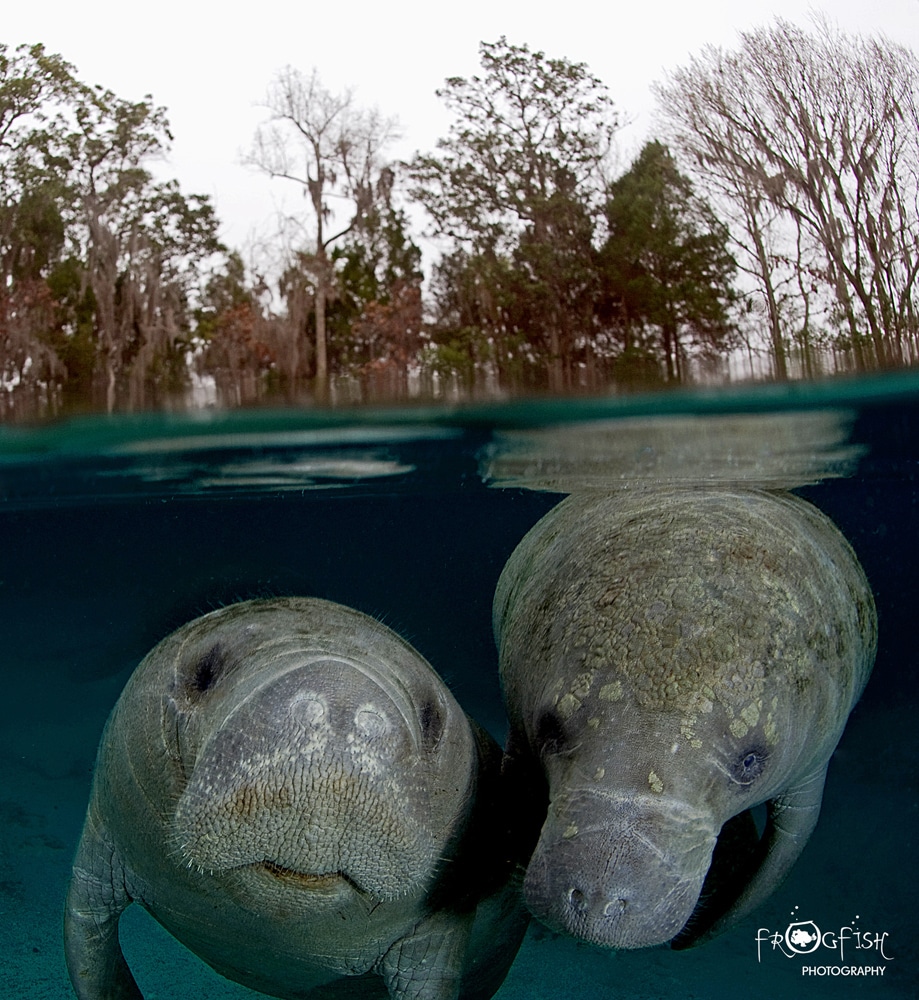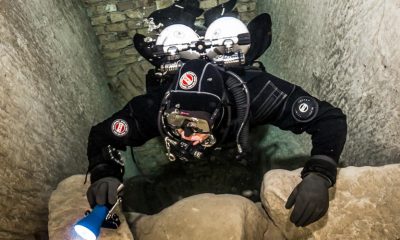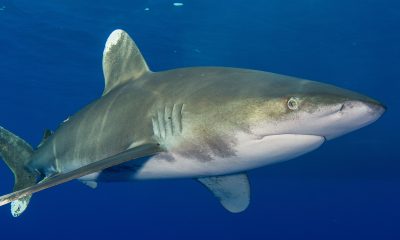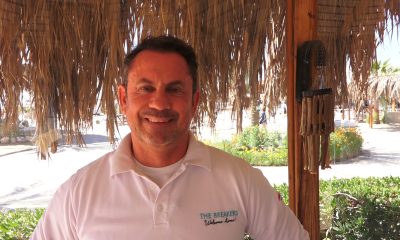Marine Life & Conservation
Seagrass Awareness Month shines spotlight on critical food source for Manatees
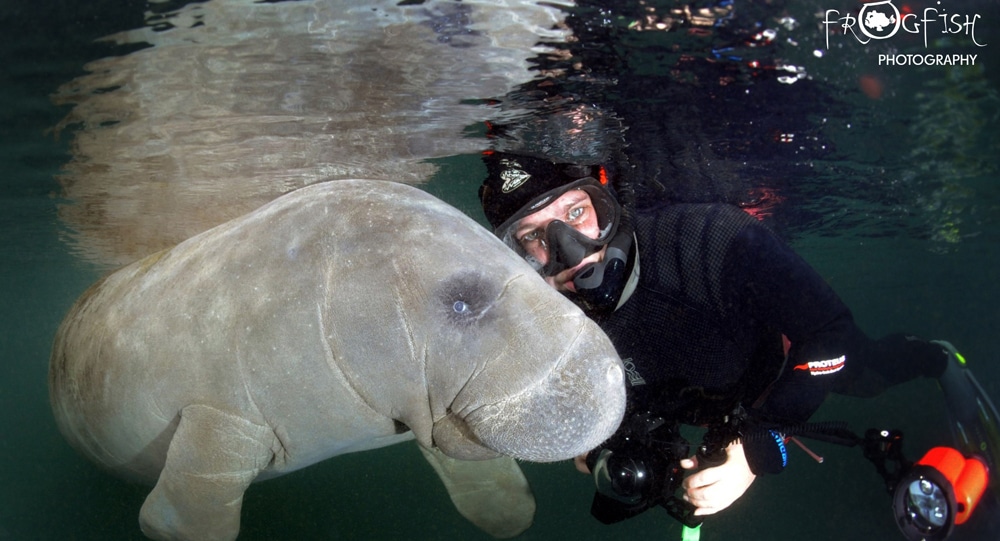
![]() March is Seagrass Awareness Month, and there has never been a more critical time to act to protect seagrass communities across Florida. This year to date, the Florida Fish and Wildlife Commission (FWC) has reported 326 known manatee mortalities, very close to the high number during this same period in 2021. A total of 1,101 manatee deaths were recorded in 2021, a number far higher than in any other year since record keeping began 50 years ago. Many of those deaths were reported in and around the Indian River Lagoon, where nutrient pollution, resulting in algae blooms, has led to catastrophic loss of seagrass.
March is Seagrass Awareness Month, and there has never been a more critical time to act to protect seagrass communities across Florida. This year to date, the Florida Fish and Wildlife Commission (FWC) has reported 326 known manatee mortalities, very close to the high number during this same period in 2021. A total of 1,101 manatee deaths were recorded in 2021, a number far higher than in any other year since record keeping began 50 years ago. Many of those deaths were reported in and around the Indian River Lagoon, where nutrient pollution, resulting in algae blooms, has led to catastrophic loss of seagrass.
Manatees are herbivores and feed on a variety of submerged, emergent, and floating plants including seagrass. There are seven species of seagrass in Florida, and manatees are known to consume all of them. But this critical food source is threatened, nowhere more so than in the Indian River Lagoon (IRL)—a critical manatee habitat—where a series of human-induced harmful algal blooms have caused the loss of more than 90% of the area’s seagrass biomass. Lack of food in this region has contributed to increased reports of malnourished manatees and unprecedented numbers of manatee deaths.
“Manatees and seagrass communities have co-evolved over millions of years. Seagrass Awareness Month is an important opportunity to spotlight this critical aquatic resource,” said Patrick Rose, Aquatic Biologist and Executive Director of the Save the Manatee Club, “Uncontrolled development, lax regulation, and the resulting pollution from Florida’s growing human population has fed the cycle of algae blooms that cause seagrass loss.”
Save the Manatee Club has a long and continuing history of working with partners to rehabilitate and protect Florida’s waterways, including helping fund research efforts to monitor the state of the Indian River Lagoon and recently opposing House Bill 349 and Senate Bill 198, the so-called “seagrass mitigation bills” that would in fact have been detrimental to seagrass and manatee populations. Additionally, last month Save the Manatee Club partnered with the Center for Biological Diversity and Defenders of Wildlife to file a lawsuit against the U.S. Fish and Wildlife Service (FWS) for failing to revise outdated critical habitat for Florida manatees and have put the Environmental Protection Agency on official notice of the groups’ intent to sue over failed water quality standards that have led to these massive seagrass losses.
The Club is also a founding member and fiduciary sponsor of a network of partners who help rescue and rehabilitate sick or injured manatees, including those that are severely malnourished.
Members of the public can do their part to protect seagrass and manatees by:
- Helping to reduce pollution from yard chemicals, which prevents harmful algal blooms from forming;
- Preventing damage to seagrasses by avoiding boating over seagrass beds or trimming up the boat’s motor and idling to a safe depth before getting on plane;
- Resisting the urge to feed or give water to manatees which is illegal and teaches them to associate people and/or boats with handouts, changing their behavior and putting them in harm’s way.
- Reporting distressed, sick, injured, or dead manatees at 1-888-404-FWCC (3922);
- Contacting local, state, and federal elected officials to urge them to help manatees and restore the Indian River Lagoon.
Aquatic Biologist Rose concluded: “Everyone must act now—from the individual members of the public, to governmental and nonprofit organizations, to our elected officials—to disrupt the cycle of pollution in our waterways. We must protect and rebuild the seagrass communities that are essential to the survival of manatees and a host of other species including fishes, dolphins, sea turtles and birds that collectively depend on this critical aquatic resource.”
For more information about manatees and the Club’s efforts, visit savethemanatee.org
Marine Life & Conservation
Double Bubble for Basking Sharks

 The Shark Trust is excited to announce that, for two more days only, all donations, large or small, will be doubled in the Big Give Green Match Fund!
The Shark Trust is excited to announce that, for two more days only, all donations, large or small, will be doubled in the Big Give Green Match Fund!
Donate to Basking in Nature: Sighting Giants
The Shark Trust is hoping to raise £10k which will be doubled to £20k. This will go towards Basking in Nature: Sighting Giants. And they need YOUR help to reach they’re goal.
The Shark Trust’s citizen science project is to monitor and assess basking sharks through sightings; encouraging data collection, community engagement, and promoting nature accessibility. This initiative aims to enhance health and wellbeing by fostering a deeper connection with British Sharks.
Campaign Aims
- Increase citizen science reporting of Basking Sharks and other shark sightings to help inform shark and ray conservation.
- Provide educational talks about the diverse range of sharks and rays in British waters and accessible identification guides!
- Create engaging and fun information panels on how to ID the amazing sharks and rays we have on our doorstep! These can be used on coastal paths around the Southwest. With activities and information on how you can make a difference for sharks and rays!
- Promote mental wellbeing through increasing time in nature and discovering the wonders beneath the waves!
Donate, and double your impact. Click Here
Marine Life & Conservation
Leading UK-based shark conservation charity, the Shark Trust, is delighted to announce tour operator Diverse Travel as a Corporate Patron

 Corporate Patrons provide a valuable boost to the work of The Shark Trust. The Trust team works globally to safeguard the future of sharks, and their close cousins, the skates and rays, engaging with a global network of scientists, policymakers, conservation professionals, businesses and supporters to further shark conservation.
Corporate Patrons provide a valuable boost to the work of The Shark Trust. The Trust team works globally to safeguard the future of sharks, and their close cousins, the skates and rays, engaging with a global network of scientists, policymakers, conservation professionals, businesses and supporters to further shark conservation.
Specialist tour operator Diverse Travel has operated since 2014 and is committed to offering its guests high quality, sustainable scuba diving holidays worldwide. Working together with the Shark Trust will enable both organisations to widen engagement and encourage divers and snorkellers to actively get involved in shark conservation.
“Sharks are truly at the heart of every diver and at Diverse Travel, we absolutely share that passion. There is nothing like seeing a shark in the wild – it’s a moment that stays with you forever!” says Holly Bredin, Sales & Marketing Manager, Diverse Travel.
“We’re delighted to celebrate our 10th year of business by becoming a Corporate Patron of the Shark Trust. This is an exciting partnership for Diverse and our guests. We will be donating on behalf of every person who books a holiday with us to contribute towards their vital shark conservation initiatives around the world. We will also be working together with the Trust to inspire divers, snorkellers and other travellers to take an active role – at home and abroad – in citizen science projects and other activities.”
Paul Cox, CEO of The Shark Trust, said:
“It’s an exciting partnership and we’re thrilled to be working with Diverse Travel to enable more divers and travellers to get involved with sharks and shark conservation. Sharks face considerable conservation challenges but, through collaboration and collective action, we can secure a brighter future for sharks and their ocean home. This new partnership takes us one more valuable step towards that goal.”
For more information about the Shark Trust visit their website here.
For more about Diverse Travel click here.
-

 News3 months ago
News3 months agoHone your underwater photography skills with Alphamarine Photography at Red Sea Diving Safari in March
-

 News3 months ago
News3 months agoCapturing Critters in Lembeh Underwater Photography Workshop 2024: Event Roundup
-

 Marine Life & Conservation Blogs2 months ago
Marine Life & Conservation Blogs2 months agoCreature Feature: Swell Sharks
-

 Blogs2 months ago
Blogs2 months agoMurex Resorts: Passport to Paradise!
-

 Blogs2 months ago
Blogs2 months agoDiver Discovering Whale Skeletons Beneath Ice Judged World’s Best Underwater Photograph
-

 Gear Reviews2 months ago
Gear Reviews2 months agoGear Review: Oceanic+ Dive Housing for iPhone
-

 Marine Life & Conservation2 months ago
Marine Life & Conservation2 months agoSave the Manatee Club launches brand new webcams at Silver Springs State Park, Florida
-

 News3 months ago
News3 months agoWorld’s Best Underwater Photographers Unveil Breathtaking Images at World Shootout 2023


